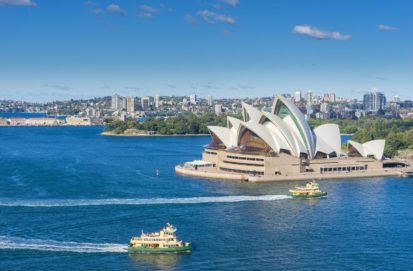Immigration updates for Brunei, Hong Kong and Singapore
Asia-Pacific
Brunei Darussalam: Extension of travel restrictions
The following travel restriction measures shall remain enforced until August 15, 2021.
- Temporary suspension on cross-border activities, which applies to:
- Entry of foreign nationals via land and seaports, including transits through Brunei Darussalam, except for entrance and transit travels that the Government of Brunei Darussalam have approved.
- Runners handling private goods collection and delivery at border checkpoints handled in Brunei Darussalam.
- Entry and exit-country travel via land and seaports for work.
- Temporary suspension on travelling to and from Bangladesh, India, Nepal, Pakistan and Sri Lanka which applies to:
- Entry and exit travels of all foreign nationals departing from or through any airport in the Indian subcontinent.
- Diplomatic passport holders and members of the armed forces working in Brunei Darussalam will be allowed to enter and exit the country, in accordance with the Ministry of Health’s Standard Operating Procedures (SOPs).
- Foreign nationals who hold an employment or dependent’s pass which has been revoked/cancelled or the holders of the “Special Authorization Work Pass” or “Professional Visit Visa” who worked temporarily in Brunei Darussalam and will be returning to their respective countries permanently will be allowed to exit the country.
- Transits through Brunei Darussalam for all foreign nationals departing from the Indian subcontinent.
- Entry of foreign nationals who have been granted pre-approvals to enter Brunei Darussalam from the Indian subcontinent (India, Nepal, Sri Lanka, Pakistan and Bangladesh) via pre-authorized flights, which have therefore been suspended.
This summary was prepared using information obtained from the Prime Minister’s Office (in Malay).
Hong Kong: Changes to quarantine requirements
Effective August 9, 2021, Hong Kong will adopt a risk-based approach and will re-categorize countries of origin into Group A (high-risk), Group B (medium-risk) and Group C (low-risk). Only fully vaccinated Hong Kong residents will be allowed to enter Hong Kong from Group A countries, and only Hong Kong residents and fully vaccinated non-Hong Kong residents from Group B countries will be allowed to enter Hong Kong.
Group A (high-risk): Africa, Brazil, India, Indonesia, Ireland, Nepal, Pakistan, the Philippines, Russia, South and the United Kingdom (Hong Kong residents who have stayed in Group A specified place(s) on the day of boarding for/arrival in Hong Kong or during the 21 days prior to boarding/arrival). Only fully vaccinated Hong Kong SAR residents will be able to enter Hong Kong.
Group B (medium-risk): All places outside China, not in Group A or Group C (travelers who have stayed in Group B countries on the day of boarding for/arrival in Hong Kong SAR or during the 14 days before boarding/arrival).
Group C (low- risk): Australia and New Zealand (Hong Kong residents and non-Hong Kong residents who have only stayed in Group C specified place(s), the Mainland or Macau SAR during the day of boarding for/arrival in Hong Kong or during the 14 days before boarding/arrival.
Quarantine requirements for the above categories can be found here.
The Singapore-Hong Kong Air Travel Bubble is now further delayed until further notice. Eligibility:
- Anyone currently in Hong Kong and Singapore, irrespective of their nationality.
- Anyone with no travel history to any place other than Singapore or Hong Kong in the 14 days before departure (the respective quarantine / Stay-Home Notice periods in Hong Kong or Singapore arising from the traveler’s last visit outside Hong Kong or Singapore do not count toward the 14-days).
- Entrants must submit a negative COVID-19 PRC test result conducted by a recognized testing institution, collected within 72 hours before departure. Hong Kong residents can only take designated flights to depart from Hong Kong to Singapore at least 14 days after having two Covid-19 vaccines.
If a traveler does not meet the conditions specified by the Department of Health, a health official may prohibit an aircraft or boat from entering Hong Kong. Air transit/transfer services at Hong Kong International Airport have resumed.
Click here to find more information regarding quarantine requirements for passengers arriving from the Mainland, Monaco and Taiwan.
This summary was prepared using information obtained from the Government of Hong Kong.
Singapore: Dependant Pass (DP) Holders tied to Employment Pass (EP)/ S Pass / Personalised Employment Pass (PEP)/EntrePass
With the cessation of the Letter of Consent (LOC), Dependant Pass (DP) holders who plan to work in Singapore or undergo internship are required to have a valid Work Pass (Employment Pass, S Pass or Work Permit). For EP and S Pass application, the applicant and sponsoring company needs to meet the prevailing criteria instigated by the Ministry of Manpower (MOM), i.e., salary requirements. Dependant’s Pass holders who obtain an Employment Pass or S Pass will be required to cancel the existing Dependant’s Pass.
Work Pass (WP) applications will be an adjoin application to the DP with the validity period tied to that of the current DP. This is only extended to dependents of WP holders and will not be subject to source six-monthly medical examination, security bond and pregnancy restrictions. They will only be counted under the sponsoring company’s overall WP Quota, and an applicable monthly foreign worker levy will also apply. The Post-approval requirements will be indicated in the Approval Letter once issued by the Singapore Ministry of Manpower (MOM).
No source available at the time of writing.
Disclaimer: The above information is provided for general information purposes only and should not be construed as legal advice. If you have any further inquiries regarding the applicability of this information, please contact Debra Jane Beynon, Regional Immigration Manager (APAC).
We track policy changes in over 120 countries. Find out how we can help you in this short video.




